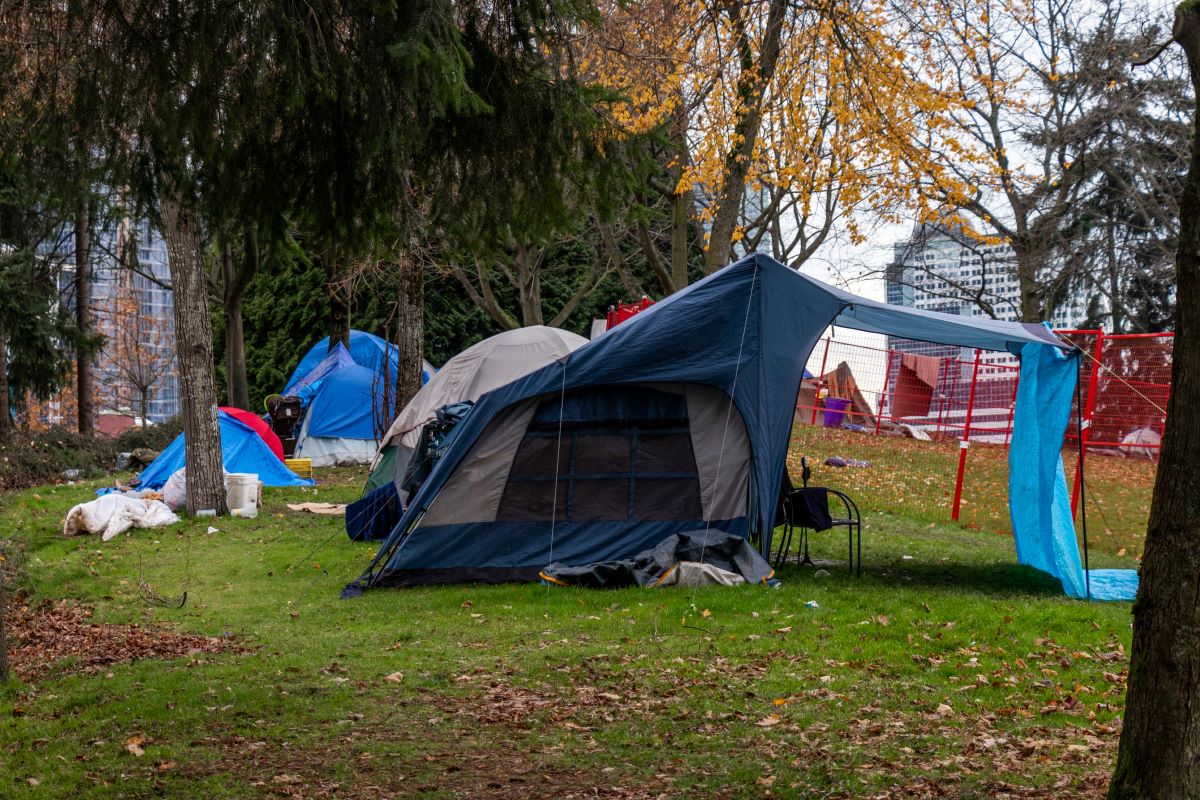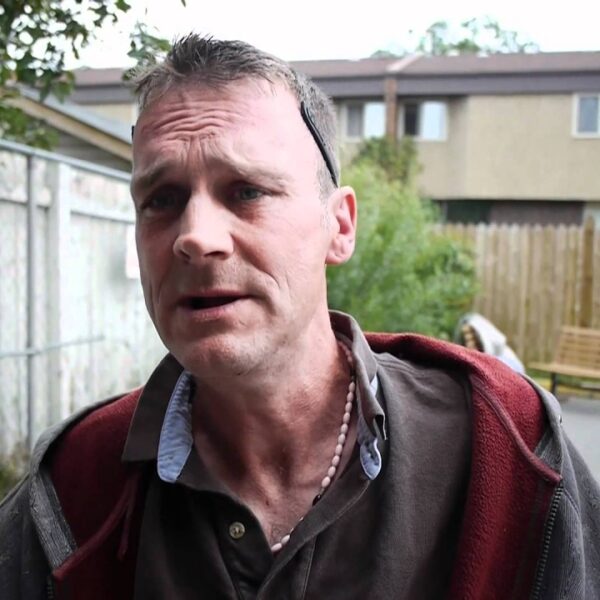People experiencing homelessness in Canada are increasingly finding allies within the country’s highest courts.
A growing body of case law in Canada says that cities cannot clear homeless encampments if there isn’t adequate shelter space available. The decisions could significantly influence how providences address homelessness as the country’s skyrocketing housing market threatens to force more people out of their homes.
“Whatever municipalities’ legal and moral obligations are to the homeless, they have an inescapable obligation to face reality: If there’s nowhere indoors that homeless people are able or willing to spend the night, they’re just going to find somewhere else outside,” Chris Selley, a columnist for the National Post, wrote in an article about the latest decision to prevent the city of Waterloo from clearing an encampment on public land.
“It’s not as if that’s an irrational decision. Homeless shelters are miserable places. A man’s home is his castle, even if it’s made of canvas,” Selley continued.
Homelessness has become a hotly debated topic across Canada over the past several years. But unlike the US, Canadian organizations do not conduct an annual count of the people living in transitional shelters or on the street. This makes the challenge of solving homelessness once and for all a tricky one.
According to Statistics Canada, a government-run data agency, more than 235,000 Canadians are experiencing homelessness as of January 2021. The agency also estimated that 25,000 to 35,000 Canadians experience homelessness on a given night, meaning they sleep in either transitional shelters or outside in encampments.
Meanwhile, many low-income Canadians are seeing their risk of experiencing homelessness increase as the country’s housing market continually becomes more expensive.
Since March 2020, when the Covid-19 pandemic began, the median home price in Canada has increased to more than $816,000 CAD, or $646,000 in US dollars. That is more than twice as expensive as the median home price in the US, and over 10 times greater than the median individual income, according to Statistics Canada.
As home prices continue to increase, many providences are trying to remove homeless encampments. For example, the city of Waterloo recently tried to evict a camp of up to 70 tents from a plot of land adjacent to a public park and a soup kitchen. This move prompted a lawsuit from advocates who argued that the city’s move would infringe on the person’s right to life, liberty, and security guaranteed by the Ontario Providence Charter.
Justice Michael J. Valente ruled that Waterloo lacked the adequate shelter space to accommodate the encampment it was trying to evict but left the door open regarding whether the city could evict the camp in the future if it could show there was adequate space.
“Just as the British Columbia cases have found … I conclude that the ability to provide adequate shelter for oneself is a necessity of life that falls within the right to life protected by section 7 of the Charter,” Valente wrote in his opinion.
Toronto is another city with an expensive housing market that has seen its homelessness rates increase over the past couple of years.
The median home price in the city is more than $1.2 million CAD, representing a 29% increase since March 2020, according to the Canadian Association of Realtors. Meanwhile, the city’s median rent has increased to more than $2,350 CAD, a 24% increase over the last 12 months.
Meanwhile, more than 18,000 people are experiencing homelessness in Toronto as of 2021, according to the Canadian Observatory on Homelessness. That total has nearly doubled since 2019.
Toronto officials have cleared multiple encampments since the pandemic began. But the practice could soon end following Valente’s ruling in Ontario.
Estair Van Wagner, an associate professor at York University’s Osgoode Hall Law School, told the Canadian Broadcasting Corporation that the decision makes Toronto “extremely vulnerable” to legal ramifications if it can’t find enough shelter space for its people experiencing homelessness.
Some advocates see the ruling as a sign of hope for Toronto’s unhoused. Kaitlin Schwan, executive director of the Women’s National Housing and Homelessness Network, told CBC that the ruling would put “significant pressure” on Toronto officials to rethink how they engage with encampments.
“And future challenges in court will rely on this ruling, and it’s quite pervasive,” Schwan said.
How You Can Help
Homelessness is not an issue that is only experienced in the US. Countries across the globe also have people experiencing homelessness and need to find solutions to the problem.
That’s why we need you to contact your representative and tell them to increase protections for low-income renters. This will help prevent people from becoming homeless after an eviction. Lawmakers also need to increase social support for people already on the street to help ease the transition from encampments to more permanent homes.












